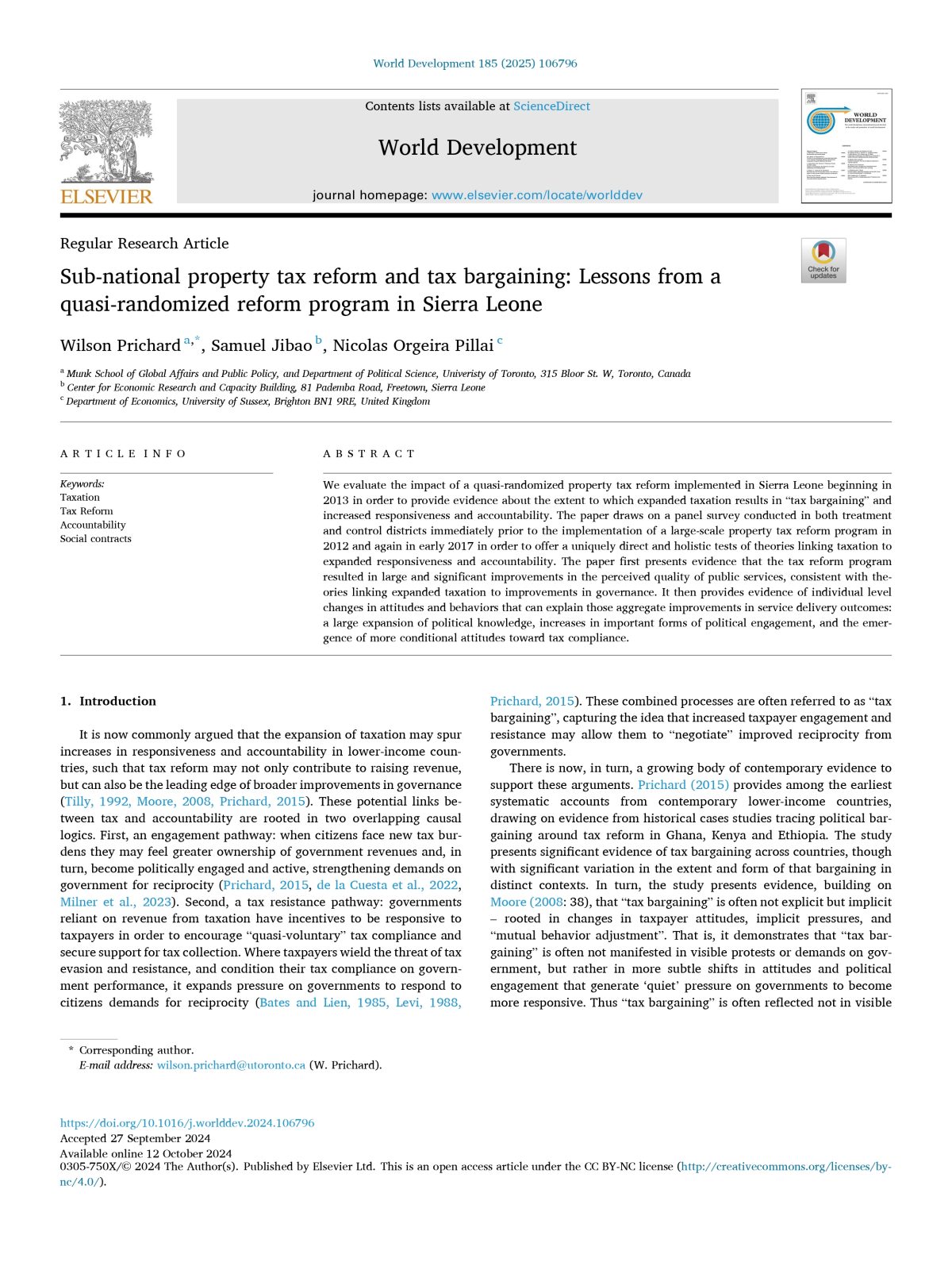We evaluate the impact of a quasi-randomized property tax reform implemented in Sierra Leone beginning in 2013 in order to provide evidence about the extent to which expanded taxation results in “tax bargaining” and increased responsiveness and accountability. The paper draws on a panel survey conducted in both treatment and control districts immediately prior to the implementation of a large-scale property tax reform program in 2012 and again in early 2017 in order to offer a uniquely direct and holistic tests of theories linking taxation to expanded responsiveness and accountability. The paper first presents evidence that the tax reform program resulted in large and significant improvements in the perceived quality of public services, consistent with theories linking expanded taxation to improvements in governance. It then provides evidence of individual level changes in attitudes and behaviors that can explain those aggregate improvements in service delivery outcomes: a large expansion of political knowledge, increases in important forms of political engagement, and the emergence of more conditional attitudes toward tax compliance.



